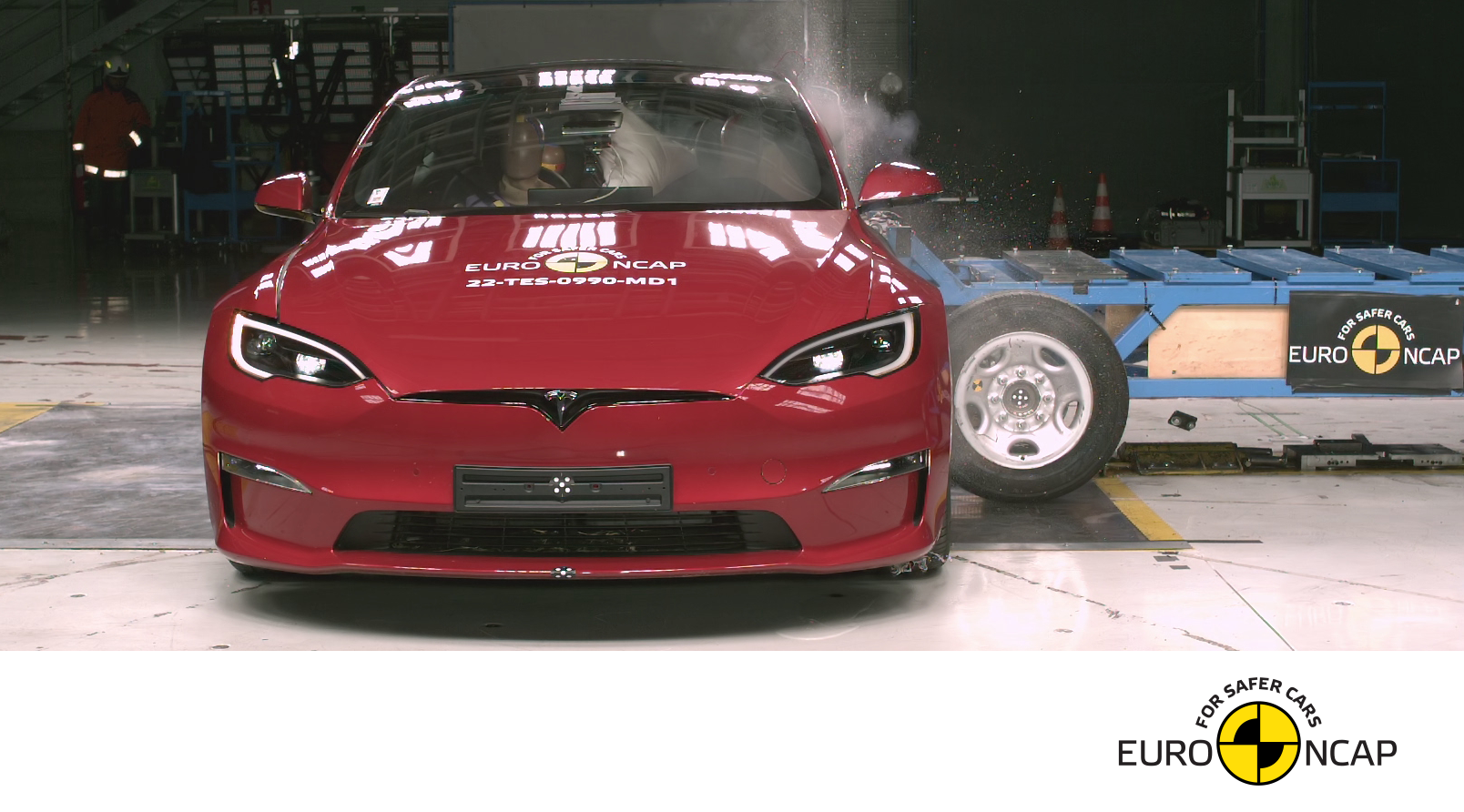Manufacturers have Euro NCAP’s Vision 2030 in sight, as fifteen cars score the maximum star rating
16th November 2022

Today, Euro NCAP’s releases the results for its largest group of cars this year and all, but one of the sixteen cars tested achieved Euro NCAP’s maximum five-star rating. Testing a wide range of vehicles in a wide range of classes, the results show the determination of manufacturers to do well in Euro NCAP’s protocols for this year. In 2023, the protocols take a turn for the tougher encouraging manufacturers to consider other road users in line with Euro NCAP’s Vision 2030.
The cars tested this November include the two full electric, Tesla Model S and the new-to-market NIO ET7, that also achieved top marks in the Green NCAP rating last week. The top scores achieved in Euro NCAP tests, with the notable maximum ratings in Safety Assist can only enhance the profile and reputation of both these cars. Also released are the five-star results for the long-awaited electric Toyota bZ4X and its official twin Subaru Solterra. The DS 9, a large family car achieved four stars, due in part to a penalty in the frontal offset test for being an aggressive impact partner towards other vehicles. The other cars achieving 5-star results were another family car, the Hyundai IONIQ 6, scoring a commendable 97% in Adult Protection; the smaller Honda Civic; the small off-roaders the Toyota Corolla Cross as well as the Nissan Ariya and its bigger brother the Nissan X Trail (2021 rating derived from its partner Nissan Qashqai last year). The large MPV Renault Austral, the Land Rover Range Rover and its sportier sister the Range Rover Sport also scored five-star ratings. Other than the NIO ET7, two further Chinese cars achieved maximum scores in this month’s test – the new small-off roader smart #1, now jointly owned by the automotive company Geely, and another small-off-roader the appealingly-named WEY Coffee 02.
To encourage safety developments and upgrades of their vehicles to better protect consumers, Euro NCAP allows vehicles manufacturers to have the same car re-tested or re-assessed to a new rating following meaningful safety improvements. This has been the case of a few vehicles in 2022 that include the Volkswagen Golf, first tested in 2019, the result of which was published last month, and the Isuzu D-Max Crew Cab, published in this month’s release. Originally given a five-star rating in 2020, new tests have been done to assess the re-designed driver knee airbag. Dummy readings indicate only marginal improvement, although the impact on the test score is greater, and Isuzu were unable to demonstrate any significant improvement for left-hand drive vehicles. While the D-MAX’s five-star rating is retained, even with the poorer performance of the left-hand drive car, Isuzu’s approach contrasts with that of Volkswagen, for example, who made significant improvements to the Golf to achieve a five-star rating against the current protocols.
Editor’s note
Journalists can find the full results on Euro NCAP's newsroom.
For media information, please contact Cordelia Wilson at media@euroncap.com.
Follow us online and on social media:
Twitter: @euroncap
Facebook: forsafercars
Instagram: @euroncap_forsafercars
YouTube: EuroncapCom
About Euro NCAP
Euro NCAP organizes crash tests on new vehicles and provides motoring consumers with a realistic and independent assessment of the safety performance of some of the most popular cars sold in Europe. Established in 1997 and backed by several European Governments, motoring, consumer and insurance organizations, Euro NCAP has rapidly become a catalyst for encouraging significant safety improvements to new car design. Visit our website: www.euroncap.com
Euro NCAP ratings strictly apply to vehicles of the specifications offered in Europe. The ratings do not necessarily apply to models offered in other regions, even when sold under an identical name, as production specification and equipment may vary.